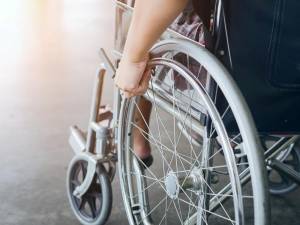Wolf Administration proposes new nursing home regs
Nursing Homes. The new regulations are focused on increasing the quality of care received by residents by increasing the minimum direct care hours. Regulations have not been updated since 1999.

Wolf Administration officials today shared proposed nursing home regulations focused on increasing the quality of care received by residents by increasing the minimum direct care hours by 1.4 more hours each day. The current skilled nursing facility regulations have not been updated since 1999.
“Revising nursing home regulations is one piece of the administration’s ongoing effort to improve care for residents and working conditions for staff in nursing homes,” said Acting Secretary of Health Alison Beam, during a news conference at Homeland Center in Harrisburg.
Beam, who was joined by leaders of four cabinet agencies as well as a nursing home worker and resident, noted this is the first in a series of five packages of proposed regulations that are based on the latest research, input from subject matter experts and industry stakeholders and informed by lessons learned during the COVID-19 global pandemic.
With the announcement the department has submitted the first installment of proposed nursing home regulations to the General Assembly, the Independent Regulatory Review Commission and the Legislative Reference Bureau. The next step is for the first package of proposed regulations to be published in the PA Bulletin by the end of July which starts a 30-day public comment period. The department encourages all interested stakeholders, including industry groups, resident advocates, and the general public to comment on the proposed regulations. Once published, comments may be submitted to the Department of Health via email: RA-DHLTCRegs@pa.gov.
“The Wolf Administration is looking at long-term care in a comprehensive manner and we are committed to getting the proposed updated regulations through the regulatory review process by the end of 2022,” added Beam. “Nursing home regulations have not been updated in nearly 25 years. Given the magnitude and importance of the regulations for more than 72,000 nursing home residents and their families, publishing the proposed updates in packages will allow each section the opportunity for appropriate feedback during the public comment period.”
The department plans to submit the final-form regulations once all five packages of updates move through the state’s regulatory review process. The regulations will apply only to the 692 licensed skilled nursing facilities regulated by the Department of Health. Personal care homes and assisted living homes typically housing residents with less acute health care needs are regulated by the Department of Human Services under separate regulations.
The first package of proposed regulations focuses on adding 1.4 required hours of direct care for residents each day to increasing the minimum standard from 2.7 to 4.1 hours within a 24-hour period.
The package also requires skilled nursing facilities to comply with the U.S. Centers for Medicare & Medicaid Services (CMS) regulations and requirements. This will make the Department of Health’s oversight process more efficient, create consistency and eliminate confusion in the application of standards.
Skilled nursing facilities and long-term care facilities were disproportionately affected by the impact of COVID-19.
Support during the pandemic included the provision of personal protective equipment (PPE), infection prevention and control technical support, staffing support, outbreak response, and ongoing testing. This assistance was provided directly by the Department of Health and through the Regional Response Health Collaborative (RRHC) program and the Regional Congregate Care Assistance Teams (RCAT) coordinated by several state agencies.
The Department of Health is concurrently working on the other four packages of proposed regulations that will include proposed updates to other critical topics including change of ownership, staff development, staffing ratios and infection control and prevention. These packages will follow the same process for public comment as this first package of proposed updates.
